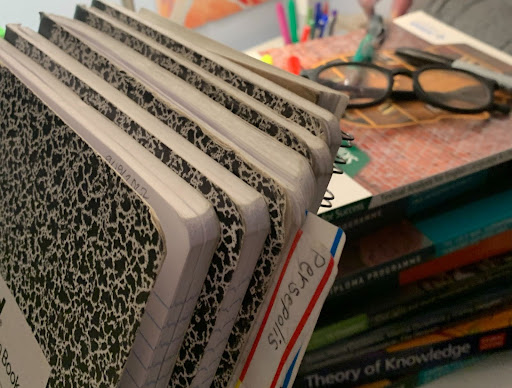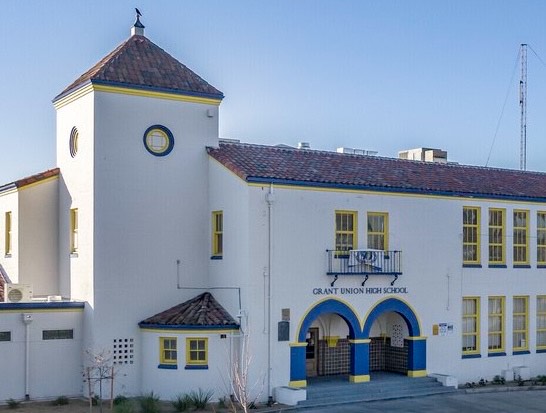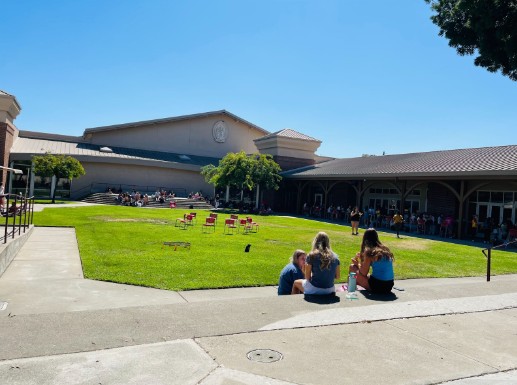At Umoja International Academy, juniors and seniors are required to participate in the International Baccalaureate curriculum, an education program with similar requirements to the Advanced Placement courses.
IB Curriculum is a program made to mold students into philosophically and academically well-rounded students, who follow certain principles (caring, risk-taking, knowledgeable, etc.) even after high school.
At Umoja, all junior and senior students must participate in IB class work, write individualized research essays for each class with accompanying projects, create multiple experiments in each subject and take written tests at the end of the year provided by the global IB association.
“We have a lot of [home]work and an equal amount of classwork,” said Owen Wilber, a senior student“So we have work on top of work that doesn’t really allow us to have extracurriculars”.
At UIA, once you reach junior year, your class and homework workloads increase to what most students say is a stressful rate.
“I’m stressed out. I don’t have any free time for myself. It feels like my mental health is deteriorating. IB tries to give us too much at one point,” Wilber said.
The sentiment of an overloaded schedule is shared by other students in the IB program at UIA.
“I haven’t seen my dad in… four months because I’ve been too busy to,” Ava Crates, another senior at Umoja says. “He lives in El Dorado but that’s way too out of the way because I’m too busy.”
This busy schedule, however, can be experienced positively by some of the students at UIA. For example, senior Eben Merritt sees the stress of the IB program as a way to change work management.
“I feel like the courses forced me to adapt better work-study habits and skills,” said Merritt. “I’m still adapting them… It’s forced me to develop better habits, I wouldn’t be able to keep up if I didn’t.”
Another positive feeling about the course comes from Max Fowler, a junior.
Fowler said, “Most of the things we have to do… we get to choose what we want to do”.
“Choosing what you want to do” at Umoja means that the student’s projects are chosen by themselves, allowing a student to study and create an essay or art piece on a specialized niche the student wants to follow.
Crates, on the other hand, sees this freedom as restrictive and said, “I have to make something I kind of enjoy into something productive I can submit to a school form.”
By a school form, Crates is referring to the CAS program, an IB-mandated tracking system where you record your creativity, activity, and service in order to show yourself as a well-rounded individual.
Although the creativity aspect is a mixed bag for those students, the IB program is seen as a help for college preparation by a majority of the students interviewed.
“I do think it’s going to help us in the future when we go to college”, said Wilber. “I do think they effectively teach us how to do our work”.
Authors Susan Saxton and Ian wrote“The International Baccalaureate (IB) Programme: An International Gateway to Higher Education and Beyond”, highlighting the point that the IB program is a college preparatory program, “In addition to the focus on knowledge and understanding of cultures and concepts, students are best served if they are learning to learn; that is, developing the skills and attitudes toward future learning that will prepare them for higher education and also for employment”.
Although the IB Program may help students when they exit high school, many students interviewed at Umoja feel burnt out and overworked.
Crate says,“ I think that once I get into college it’s going to be easy. I’ll get free time… I won’t have courses back to back. I would love to have free time again.”
For information on the sources used please refer to The International Baccalaureate (IB) programme: An international gateway to higher education and beyond








